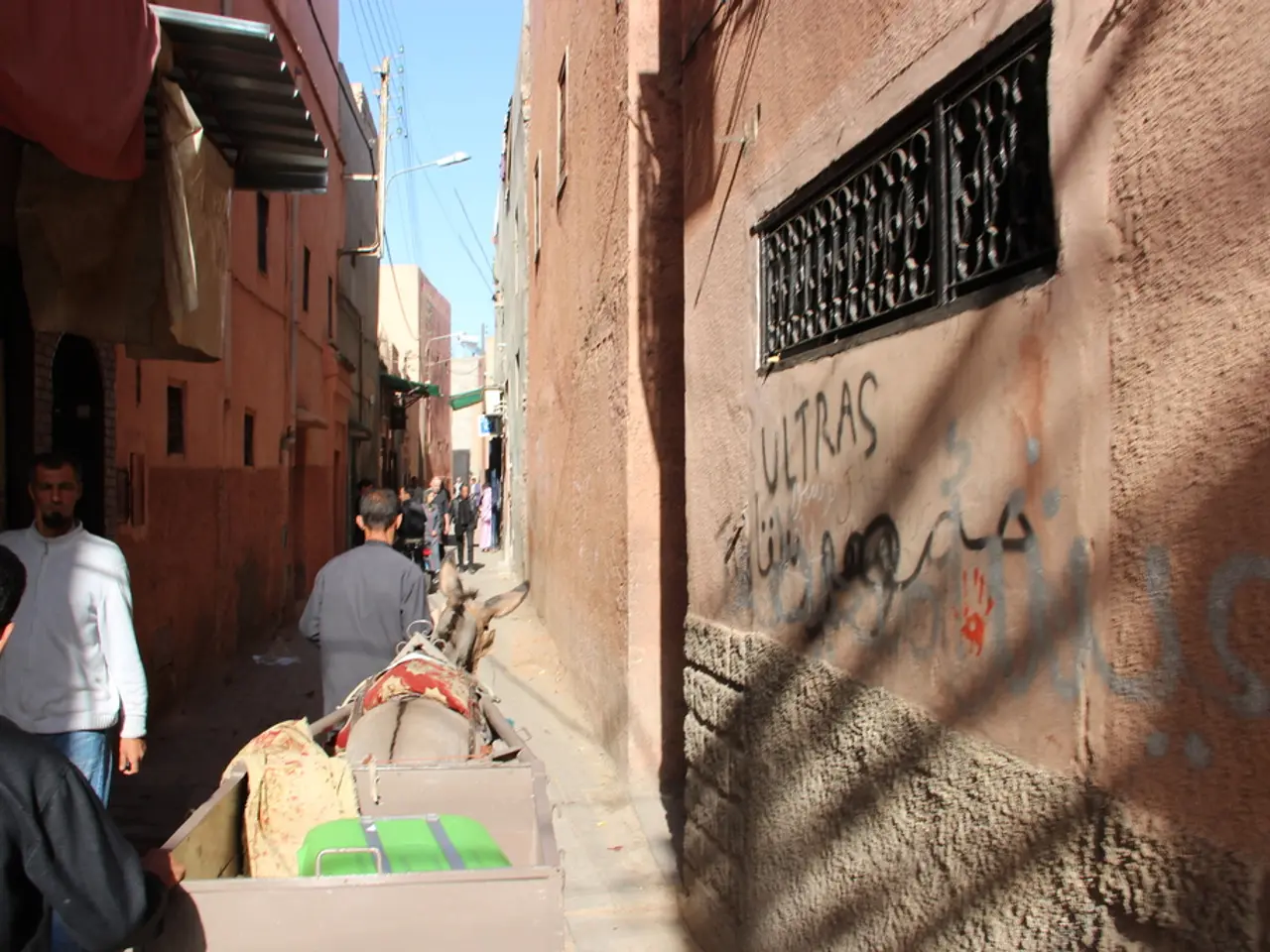Australia's endorsement of 'Palestine' boosts Hamas, impedes peace efforts
In a move aimed at advancing the two-state solution as the foundation for peace in the Israel-Palestine conflict, Australia has announced its decision to recognise Palestinian statehood next month at the United Nations General Assembly [3]. This recognition is a response to stalled negotiations and expanding Israeli settlements that undermine peace prospects [1].
The decision has sparked a wave of reactions, with some viewing it as a positive step towards building global momentum to break the cycle of violence and promote reforms within the Palestinian Authority. However, concerns have also been raised about potential consequences, particularly the empowerment of Hamas, a terrorist organisation that controls Gaza and opposes Israel's existence [2].
Historical consistency is one of the arguments supporting Australia's decision. Back in 1947, Australia originally supported the UN Resolution 181, which envisaged two states side by side, Israel and Palestine [1]. The world, it is argued, can no longer wait for direct negotiations given deteriorating conditions such as settlement expansion and political deadlock [1].
The Palestinian Authority, too, has made commitments towards governance reforms, demilitarization, cessation of prisoner payments, education reform, general elections, and recognizing Israel's right to exist [1]. Additionally, many countries are moving to establish Palestinian statehood consistent with peace efforts [1].
However, critics argue that recognising Palestine could strengthen Hamas, thereby complicating peace efforts. Israel’s leadership has strongly criticised the move, with fears that it may affect diplomatic ties and Australia's influence in the region [2]. The decision also puts Australia at odds with certain international actors, including former U.S. President Donald Trump and his allies, who oppose unilateral recognition without direct negotiations [2].
Practical challenges are also evident. Building statehood requires credible governance and security arrangements, and the Palestinian Authority acknowledges much work remains to establish effective control and peaceful coexistence [1].
The American Jewish Committee (AJC) has expressed deep concern over Australia's decision. The AJC calls it "deeply disappointing and counterproductive" and argues that it ignores the complex realities on the ground, particularly that the Palestinian Authority does not control all territories it claims [2]. The AJC urges Australia to impose sanctions on Hamas and call for its blacklisting by UN Secretary-General António Guterres for using sexual violence in conflict.
Meanwhile, Deputy Foreign Minister Sharren Haskel has denounced Australia's decision, stating it rewards Hamas [2]. President Isaac Herzog of Israel has also warned against the recognition of a Palestinian state, calling it a "grave and dangerous mistake" and a "reward for terror" [2].
As Australia prepares to present its case at the United Nations General Assembly, the decision to recognise Palestinian statehood promises to be a pivotal moment in the Israel-Palestine conflict, with implications for peace, security, and diplomatic relations.
References: [1] ABC News Australia (2023). Australia to recognise Palestine at UN General Assembly. Retrieved from https://www.abc.net.au/news/2023-04-01/australia-to-recognise-palestine-at-un-general-assembly/13461766
[2] The Jerusalem Post (2023). AJC criticises Australia's decision to recognise Palestinian statehood. Retrieved from https://www.jpost.com/opinion/ajc-criticises-australias-decision-to-recognise-palestinian-statehood-679164
[3] The Australian (2023). Australia to recognise Palestinian statehood at UN. Retrieved from https://www.theaustralian.com.au/nation/australia-to-recognise-palestinian-statehood-at-un/news-story/71e700819351b726152e9f807954d723
- The international community is debating the implications of Australia's policy-and-legislation decision to acknowledge Palestine, as some see it as a positive step towards war-and-conflicts resolution while others fear it could strengthen organizations like Hamas, potentially complicating politics and peace negotiations.
- In light of the growing general-news reports of stalled negotiations and expanding Israeli settlements in the Israel-Palestine conflict, Australia's recognition of Palestinian statehood at the United Nations General Assembly is a response aimed at advancing the two-state solution and promoting reforms within the Palestinian Authority.





